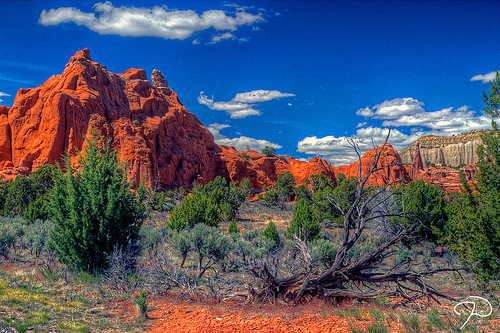I’m a good person. I worship God in my own way. I don’t need people telling me how I should think or what I should believe. Who needs all the bickering, hypocrisy, and boring, outdated rules?
It’s all between God and me; the rest of you just get in my way — confusing me with all your claims and doctrine and traditions. God and I are fine without you.
So why do I need the church?
You probably get that question a lot.
For too many years, the church did not answer it. It had so much power and status that it didn’t have to justify anything. Too much status, power, and entitlement makes the church forgets why it exists.
People often defend the church by giving the wrong answer: “Because you’re supposed to. Because that’s the way we were brought up.” That response doesn’t answer the question at all.
Nor is the traditional image of the church as “God’s house” helpful. Organized Christianity has played heavily on this angle. It’s how they justified taxing poor peasants to death in order to support the massive and luxurious structures of the church — an abusive situation that helped fuel the Reformation.
Really? The Creator of the Universe, a power beyond our imagination, can’t find a home and has to depend on the charity of humans?
I have found an interesting result when I have posed two simple questions. The first question is, where do you see God most clearly?
The most common answer I receive is “in nature.” People see God most clearly in the wonder and majesty of God’s creation. I get that.
In the past months, I’ve been privileged to spend an unusual amount of time in nature. Immediately upon leaving God’s unspoiled artistic work in Arches, Zion, and Death Valley, we entered the human-engineered creation of Los Angeles. Somehow the greatest work that human hands in that city can produce does not have the same effect. No one looks at the 16-lanes of traffic, smog, and even the structures of the city and says, “Wow, Bryce Canyon can’t hold a candle to this!”
Our most beautiful buildings, spires, worship areas cannot compete with God’s handiwork. I cannot argue with the fact that you are far more likely to experience God in nature than in a church.
But then I ask: where do you see Jesus most clearly? The answers are entirely different. I have yet to hear anyone say, “I see Jesus most clearly in nature.” We saw spectacular, breath-taking natural works on our vacation. But I didn’t see Jesus there. Not a glimpse.
When people are asked, where do you see Jesus most clearly, they speak of human interaction.
They tell stories of the incredible love and devotion of a parent who sacrificed so much so that they could have a decent life
They tell of a medical people who spend their vacation working 14-hour days to save the lives of desperately poor.
They tell of the strangers who gave of their time and treasure to see that kids with nothing got to celebrate Christmas.
They tell of people who dedicate their lives to fostering peace and love in the world.
You don’t see that side of Jesus in nature. You see that in a church, if the congregation is worth anything at all.
Jesus came to earth to show us what the distant, incomprehensible God of all that beauty and majesty in nature really looks like on the inside. Jesus came so that, in him, we could see God, up close and personal.
You don’t see God up close and personal by getting a buzz over a spectacular sunset, or standing in awe at the beauty of nature, or enjoying your own little personal relationship with God. You touch God by sharing the overflowing love that God has given you.
This summer, I saw God distantly in the incomprehensible beauty of Utah’s Kodachrome Valley. But I saw Jesus most clearly in the ugliest place I visited this summer, the inner city neighborhood where teenagers worked their tails off to make a downtrodden person’s life a little better.
I’m not scoffing at the idea of building and maintaining a Temple to honor God. It’s a worthwhile task, and it doesn’t matter that even the best we can do will be woefully inadequate.
On our Christmas tree we hang a number of ornaments that are not spectacularly beautiful. You can go to any store and find higher quality ones. Yet they are valued possessions. They are the ornaments our children made for us when they were small.
What makes them valuable is not the skill that went into making them, nor the finished product. It is the fact that they were made to the best of their ability and that they were made with love. When we look at them, we can see our children and treasure the gift of relationship.

